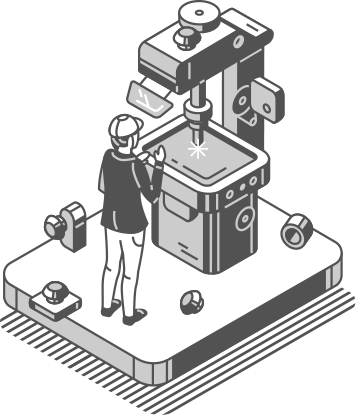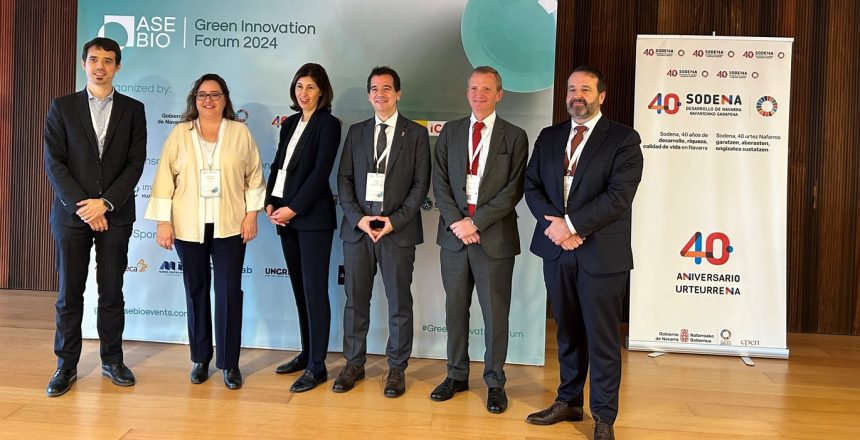The Autonomous Community of Navarra is committed to an “innovative, sustainable and collaborative” business ecosystem that promotes economic development, scientific progress and improved quality of life. “We are convinced that it can be a key value-added tool in the ecological transition,” confirmed Mikel Irujo, Minister of Industry and Ecological and Digital Business Transition. His statements came during the fifth edition of the Green Innovation Forum, organized by Asebio and the Government of Navarra, through its public company Sodena and attended by more than 200 professionals from 120 companies from eight countries.
The Green Innovation Forum 2024 focused on key issues for the green transition such as the role of OMICs applied to nutrition and food tech; the challenges faced by synthetic biology and the horizon it poses; the role of biotechnology in the protection of our soils; the regulatory challenges posed by new genome editing techniques; the keys to move towards a carbon neutral world; or the importance of concepts such as collaboration and transfer in bioeconomy, among others.
“Biotechnology is an indispensable tool for addressing the most pressing environmental challenges of our time. Climate change, resource scarcity and biodiversity loss demand innovative and sustainable solutions. It is imperative that we develop biotechnology-based technologies that are not only effective, but also respect ecosystems and communities. This platform, where the exchange of ideas, collaboration and the generation of synergies are fundamental, offers us a unique opportunity to join our efforts and build a more sustainable future,” said Adriana Casillas, vice-president of AseBio and CEO & co-founder of Tebrio.
In this sense, the meeting held in Pamplona offered a space for the generation of new business and investment opportunities, thanks to its partnering platform that enabled more than 200 one-to-one meetings, as well as the opportunity for nearly a dozen companies to share their business plan with an audience of 16 professional investors.
For Rocío Arroyo, president of AseBio, “this event represents everyone’s commitment to a greener and more sustainable future. The passage of the Dana through the Valencian Community has led to a new natural disaster, which once again puts on the table the urgency to react and act. Europe has to be alert and bet on sectors such as biotechnology, which plays a fundamental role in the search for innovative solutions that contribute in a differential way to the well-being of the planet”, he concluded.
THE RENEWABLE ECOSYSTEM OF NAVARRA
Navarre is a pioneer and European benchmark in the production of renewable energies, with a historic technological and industrial commitment that has driven the development of new global standards in wind energy.
This sector is the third most important in the region, after the automotive and agri-food industries, and has a solid industrial network made up of more than 110 companies, which represent 10% of industrial employment and generate a turnover of 4,500 million euros, equivalent to 5% of the region’s GDP. It is also the second largest export sector in Navarre, mainly in the manufacture of wind turbines and their components.
The existing dense industrial fabric covers all links in the value chain, including a large renewable energy operator, Acciona Energía, and two large OEMs: Siemens Gamesa and Nordex-Acciona Windpower. There is also a group of SMEs that provide high added value in specific components such as blades, control systems, bearings and gearboxes. All those interested in further information on the renewable energy ecosystem in the region can do so by clicking on this link.
Source: navarra.es




